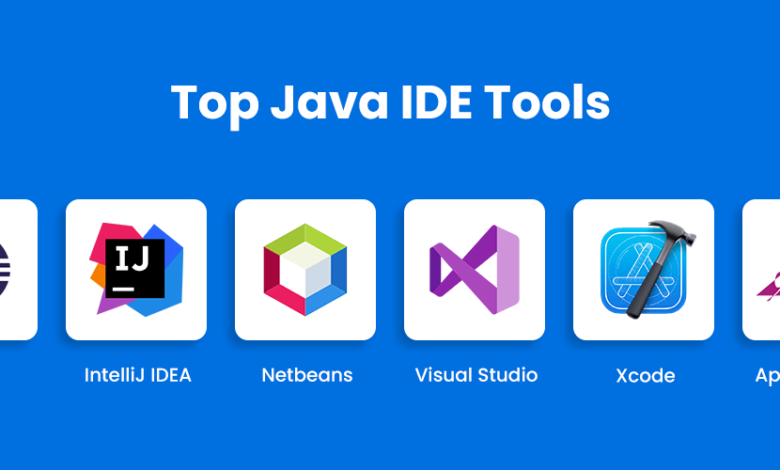Java Programming Tools: Crafting Code with Precision
Exploring the Java Programming Toolbox: A Comprehensive Guide

Using the right tools is essential for accuracy and efficiency in the ever-evolving Java programming landscape. From beginner coders to prepared designers, understanding the variety of Java programming tools is vital to enhancing the advancement interaction. Let’s investigate the positive aspects of this extensive toolbox and address potential obstacles.
Navigating the Java Programming Landscape with Tools
Java, with its flexibility, requests a different arrangement of instruments to take special care of the one of a kind requirements of engineers. The right Java programming tools can make all the difference when debugging, optimizing, or creating intricate algorithms.
Positive Encounters with Java Programming Tools
-
Incorporated Advancement Conditions (IDEs)
- IDEs like Obscuration, IntelliJ Thought, and NetBeans offer thorough improvement conditions. They give highlights like code finish, investigating, and task the board, improving efficiency and code quality.
Build Automation Tools
- Tools like Apache Maven and Gradle automate the build process, simplifying dependency management and project configuration. They contribute to a streamlined development workflow, ensuring consistent and reproducible builds.
Debugging Tools
- Debugging is a crucial aspect of programming, and Java offers robust tools like Eclipse Debugger and IntelliJ IDEA Debugger. These tools empower developers to identify and rectify issues, leading to more reliable code.
Performance Analysis Tools
- Java VisualVM and YourKit are powerful tools for performance analysis. They allow developers to profile applications, identify bottlenecks, and optimize code for enhanced efficiency, ensuring optimal runtime performance.
Challenges in the Realm of Java Programming Tools
Learning Curve
- The extensive features of some Java programming tools may pose a learning curve for new users. Navigating through complex functionalities can initially be challenging, requiring investment in training and exploration.
Resource Consumption
- Certain tools, particularly those involved in performance analysis, may consume significant system resources. Developers need to be mindful of the potential impact on the development environment’s performance when utilizing resource-intensive tools.
Tool Compatibility Issues
- As the Java ecosystem evolves, compatibility issues may arise between different versions of tools and the Java Development Kit (JDK). Staying updated with the latest tool versions that align with JDK updates is crucial to avoiding compatibility challenges.
Essential Java Programming Tools and Their Applications
Integrated Development Environments (IDEs)
- IDEs provide a unified environment for coding, debugging, and project management. Eclipse, known for its extensibility, is favored for large-scale projects, while IntelliJ IDEA excels in user-friendly design and advanced features.
Build Automation Tools
- Apache Maven simplifies project management and dependency resolution, making it a go-to choice for Java projects. Gradle, with its flexibility and support for multiple languages, is an alternative embraced by developers seeking a modern build tool.
Debugging Tools
- Eclipse Debugger offers a comprehensive set of features, including step-by-step debugging and variable inspection. IntelliJ IDEA Debugger, known for its user-friendly interface, provides advanced debugging capabilities, enhancing the development process.
Performance Analysis Tools
- Java VisualVM, bundled with the JDK, is a versatile tool for monitoring, troubleshooting, and profiling Java applications. YourKit, renowned for its low overhead, is often preferred for in-depth profiling and analysis of performance bottlenecks.
Strategies for Optimizing Tool Usage in Java Programming
Investing in Learning and Training
- Overcoming the learning curve of sophisticated tools requires investment in learning and training. Online tutorials, documentation, and community forums serve as valuable resources to enhance proficiency with Java programming tools.
Balancing Resource Consumption
- Be mindful of the resource consumption of performance analysis tools. Schedule profiling sessions during development lulls, and consider utilizing lightweight alternatives for routine debugging to optimize resource usage.
Regularly Updating Tools
- To mitigate compatibility issues, regularly update Java programming tools in alignment with JDK updates. Staying current with the latest tool versions ensures a seamless development experience and access to new features.
Tailoring Tool Selection to Project Needs:
- Select tools based on project requirements and team preferences. Tailor your toolset to match the scale and complexity of the project, optimizing the development workflow and maximizing productivity.
Conclusion: Crafting Code with Precision
In the expansive realm of Java programming, the right set of tools acts as a guiding compass for developers. From IDEs streamlining development tasks to performance analysis tools optimizing runtime efficiency, each tool serves a distinct purpose in the code crafting process. While challenges like a learning curve and resource consumption exist, strategic approaches, continuous learning, and tool optimization techniques empower developers to navigate the Java programming landscape with confidence. As you explore the rich toolbox available, remember that proficiency with Java programming tools is not just a skill; it’s a journey towards crafting code with precision and finesse.



